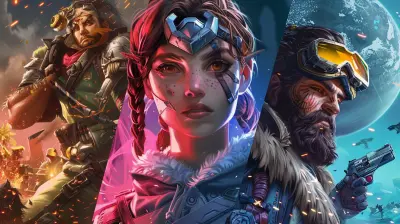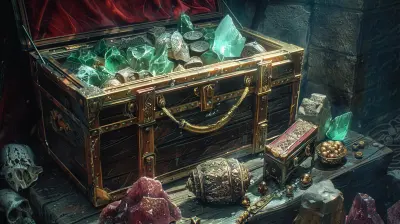A Look Back at the Golden Age of RPGs
23 September 2025
Ah, the good old days. If you’re an RPG fan, you’ve probably heard the term Golden Age of RPGs tossed around like it’s some hallowed, mystical era. And honestly? It pretty much was. We're talking about the pivotal time in gaming’s history where role-playing games (RPGs) didn’t just shine—they blazed a trail for immersive storytelling, unforgettable characters, and gameplay that kept you glued to your controller for hours.
So, what made this time so special? Why do we still talk about it with stars in our eyes? Let’s take a nostalgic stroll down memory lane and revisit why the Golden Age of RPGs still has our hearts. 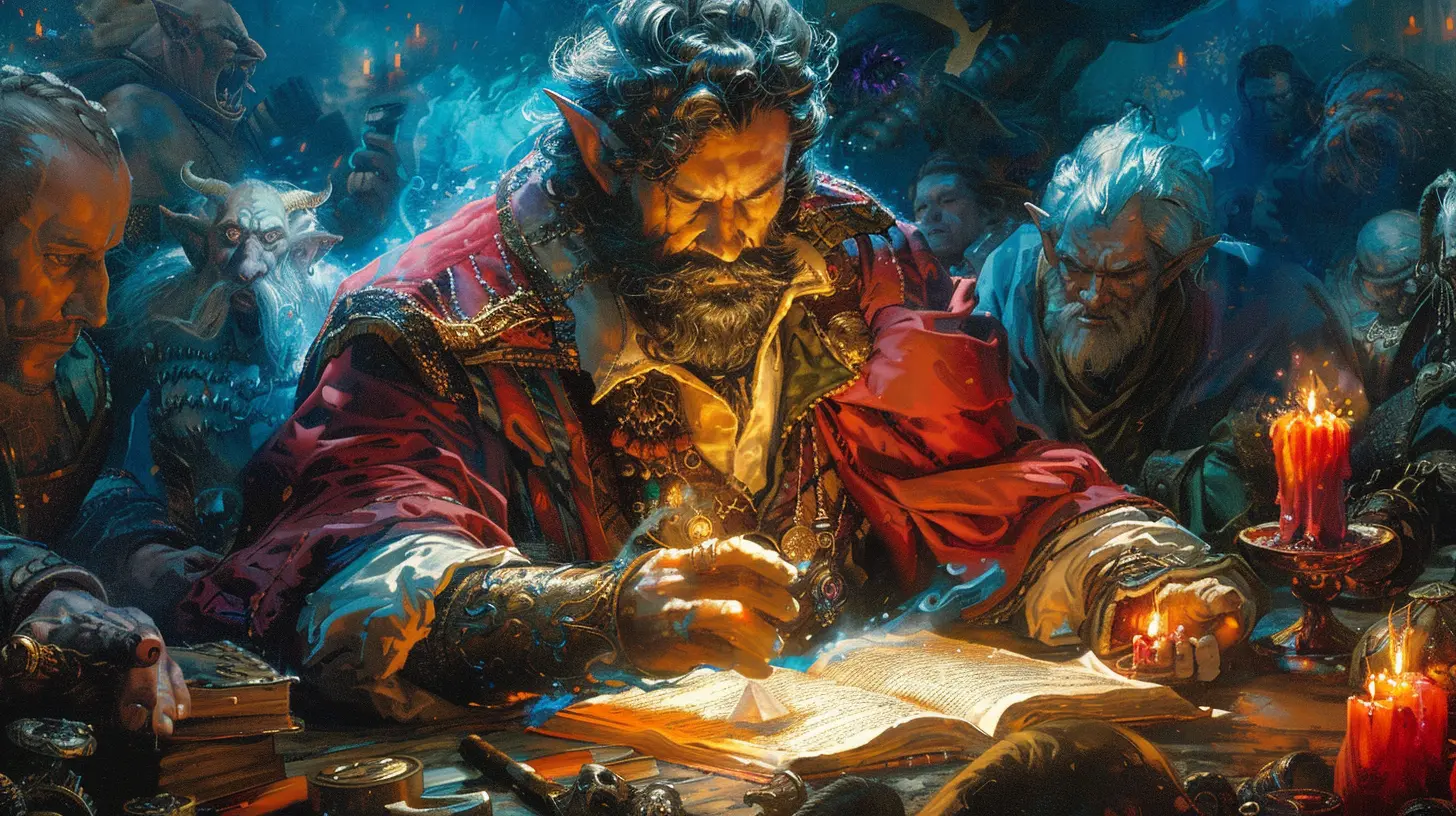
When Was the Golden Age of RPGs?
To pinpoint the exact timeframe of the Golden Age of RPGs is kind of tricky. Some say it spanned the late '80s to the early 2000s; others argue the '90s were the golden core. Either way, this era stood out for one reason: innovation.The late '80s introduced us to groundbreaking games like Final Fantasy and Dragon Quest. These weren’t just games; they were revolutionary experiences that set the foundation for everything that came next. By the time the '90s rolled around, franchises like Chrono Trigger, Baldur’s Gate, and The Elder Scrolls were redefining what was possible in interactive storytelling.
It was a time when pixels looked blocky, yet the stories felt rich, deep, and immersive. You didn’t just play an RPG; you lived it. (And let’s be honest, you probably skipped a few chores to rack up hours in these worlds!) 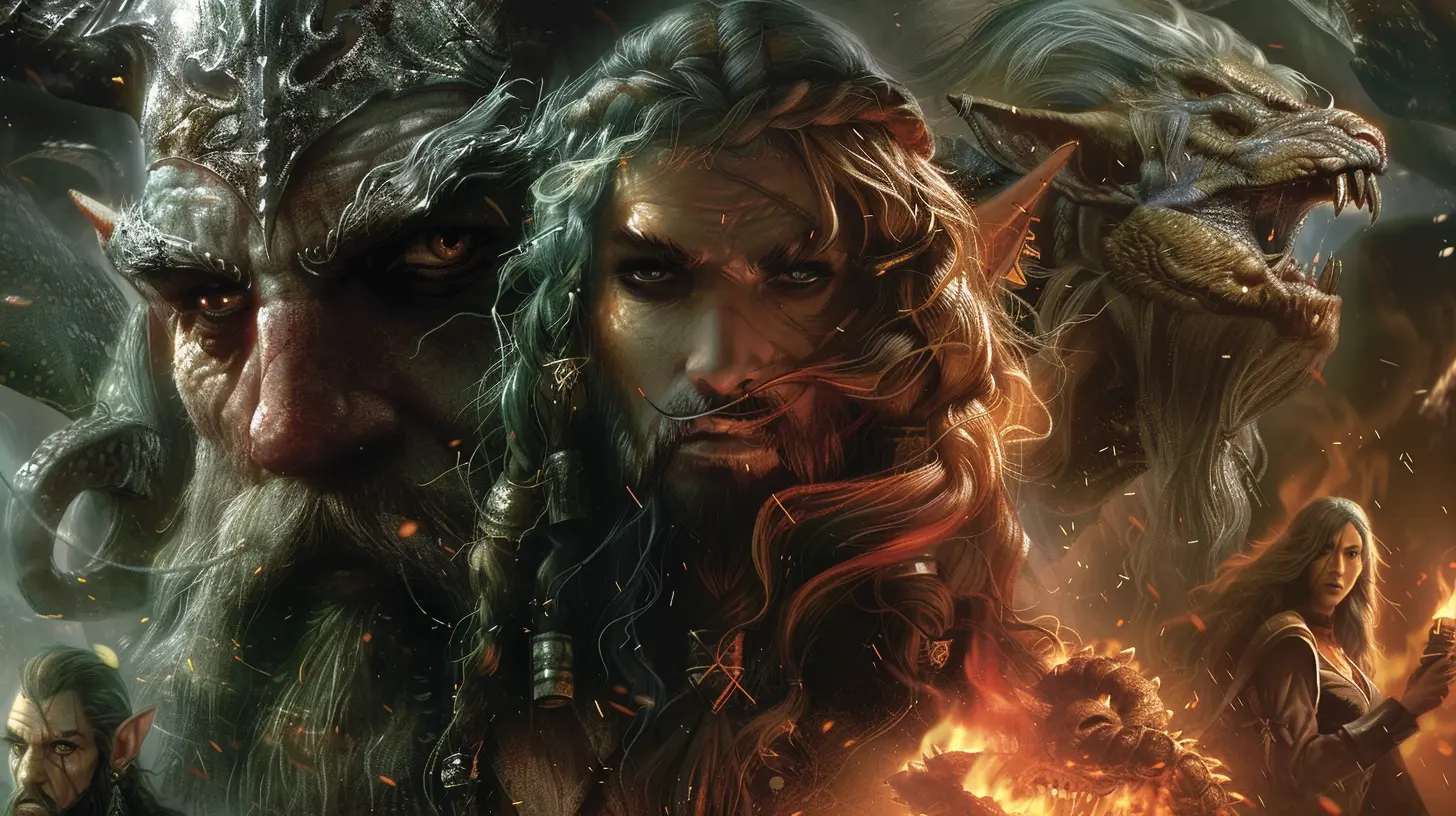
What Made the Golden Age of RPGs So… Golden?
Let’s break this down. What was it about this period that turned RPGs into something truly magical? A combination of factors came together like the perfect storm, and boy, did it deliver.1. Memorable Stories with Emotional Depth
If you've ever shed a tear while playing a game (don’t worry, we won't judge), chances are it happened during this era. The Golden Age RPGs didn’t just rely on flashy visuals (because, well, they couldn’t)—they focused on compelling narratives.Take Final Fantasy VII, for example. It wasn’t just a story; it was an emotional rollercoaster. Cloud’s inner struggles, Aerith’s tragedy… Even today, you can mention that scene to any gamer, and they'll know exactly what you're talking about.
And then there was Chrono Trigger, with its branching paths and alternate endings. It was like a choose-your-own-adventure book on steroids. Every decision mattered—like an emotional chess game where you never quite knew how things would play out.
These weren’t just games; they were experiences that tugged at your heartstrings and left you questioning life itself.
2. The Birth of Iconic Franchises
Let’s be real: the Golden Age of RPGs gave us the franchises that still dominate the gaming world today. Without it, we wouldn’t have Final Fantasy XVI or The Witcher 3. It was during this period that developers laid the groundwork for what would become iconic gaming legacies.Games like The Elder Scrolls II: Daggerfall gave us massive, open-world maps. Pokémon Red and Blue turned an entire generation into digital monster trainers. And who could forget Diablo for popularizing fast-paced action-RPGs?
This era wasn’t just "good"—it created blueprints that modern developers still follow today.
3. Limitations Bred Creativity
Let’s address the elephant in the room: the technology back then was, well… kind of clunky by today’s standards. 16-bit sprites? Limited storage? No facial animations? Sounds like a nightmare, right? Nope. It was a blessing in disguise.Developers had no choice but to focus on other aspects of the game—things like gripping dialogue, detailed maps, and complex gameplay systems. For instance, EarthBound, while graphically simple, charmed players with its quirky humor and surreal storyline.
It’s like cooking with fewer ingredients—you have to get creative to make something delicious. And boy, did they cook up some masterpieces.
4. Music That Stuck With You
Ever find yourself humming a tune from a game you haven’t played in 20 years? That’s the magic of Golden Age RPG soundtracks. Composers like Nobuo Uematsu (Final Fantasy) and Yasunori Mitsuda (Chrono Trigger) created music that didn’t just set the tone—it became part of the experience.Think about it. Can you hear the opening theme of Final Fantasy VI and NOT get chills? Or boot up The Legend of Zelda: Ocarina of Time without immediately being transported back to Hyrule? Probably not. The music was more than background noise—it was a character in its own right. 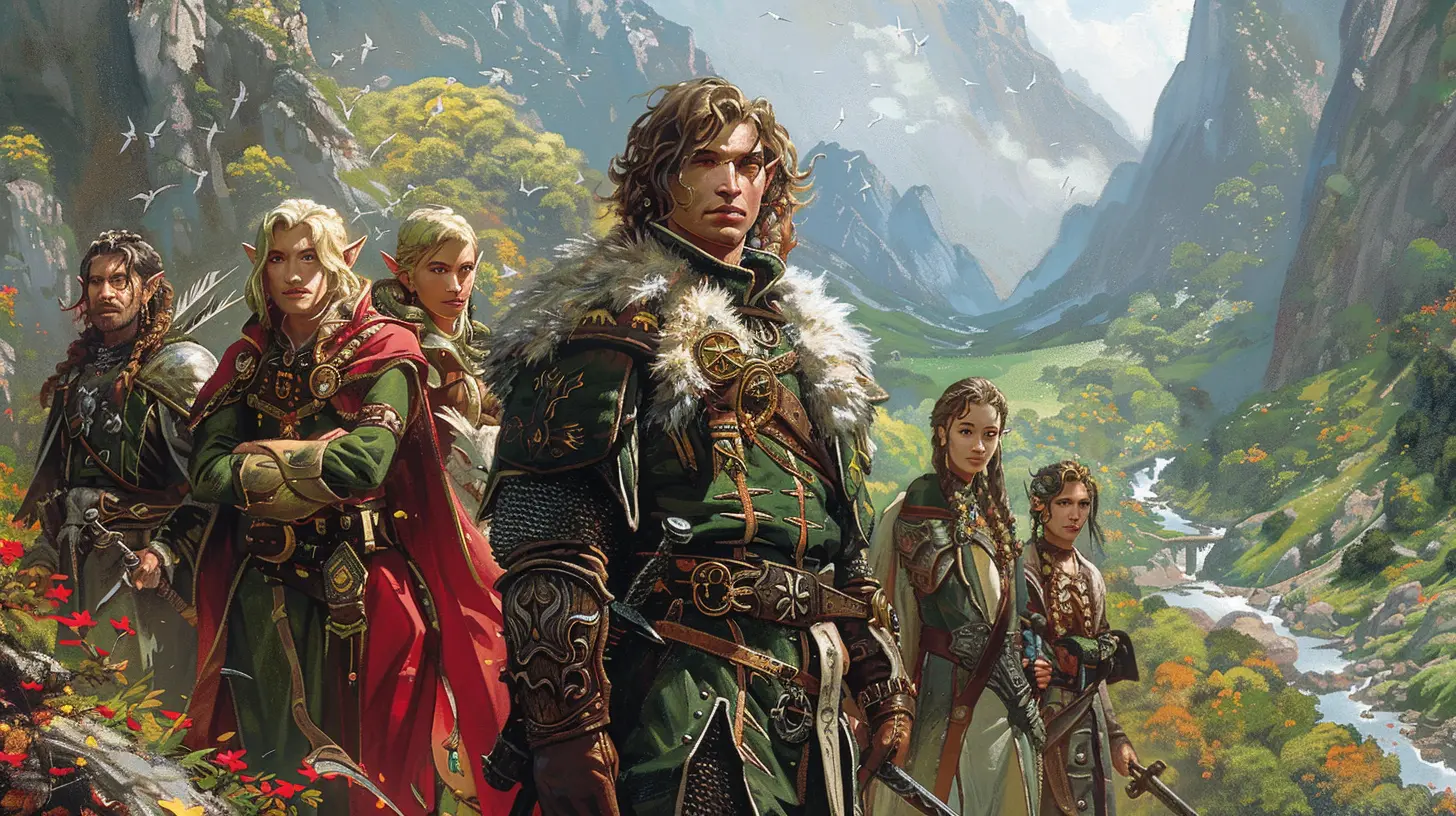
The Evolution of Gameplay
One of the most impressive hallmarks of the Golden Age was how developers dared to experiment with gameplay. It wasn’t about following trends; it was about pushing boundaries.Turn-Based Combat at Its Best
Turn-based combat was THE thing back then, but it wasn’t boring. Games like Final Fantasy Tactics and Suikoden II transformed battles into strategic, chess-like experiences. You weren’t just mashing buttons; you were planning, thinking, strategizing.Freedom to Explore
The Golden Age also embraced exploration like never before. Open-world maps (well, as open as they could be at the time) gave players the freedom to wander wherever their hearts desired. Games like Secret of Mana and The Elder Scrolls: Arena let you carve your own path instead of being funneled down a linear story.Customization and Choices
Character customization? Choice-based endings? This may be standard today, but back then, it was groundbreaking. Games like Baldur’s Gate and Ultima Online made sure your decisions carried weight. Want to play as a morally questionable rogue? Go for it. Want to save the kingdom? Sure. The choices were yours, and they mattered.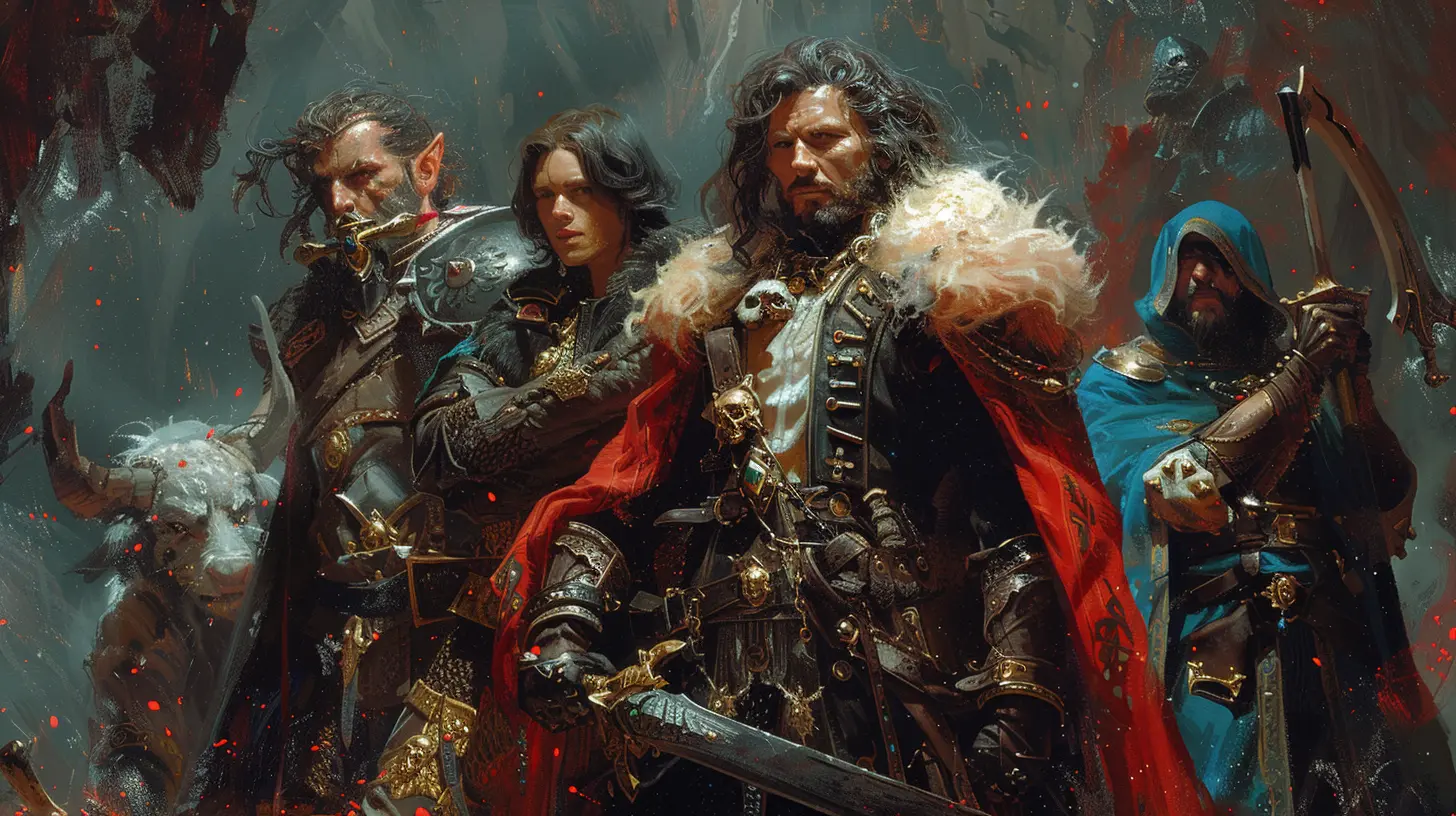
Were They Really "Better"?
Let’s address the big, awkward question: Are Golden Age RPGs actually better than what we have now? Well… yes and no.On one hand, modern RPGs have stunning graphics, massive worlds, and quality-of-life improvements (thank you, fast travel!). But there’s something irreplaceable about the Golden Age. It had heart, soul, and a kind of scrappy underdog charm that modern games sometimes lack.
Back then, every new RPG felt like stepping into uncharted territory. Today, even the best games can sometimes feel like iterations of what came before.
The Legacy of the Golden Age
The Golden Age of RPGs may have ended, but its impact is alive and well. Games like Persona 5 and Divinity: Original Sin II are spiritual successors to that magical era. Even indie developers are getting in on the action, creating retro-style RPGs that harken back to the glory days.In a lot of ways, the Golden Age never really ended—it just evolved. And as long as there are gamers who crave deep stories, complex characters, and the thrill of exploration, its legacy will continue to inspire.
Conclusion: Why We Still Love the Golden Age of RPGs
The Golden Age of RPGs was more than just a period in gaming history; it was a movement. It showed us that games could be more than just entertainment—they could be art, escape, and storytelling all rolled into one.Sure, we may have moved on to flashier graphics and bigger worlds, but every once in a while, it’s worth dusting off those old cartridges or firing up an emulator. Because the magic of those games? It’s timeless.
Whether it’s saving the world in Final Fantasy VI or chasing Lavos in Chrono Trigger, the Golden Age of RPGs proved that sometimes, it’s the journey—not the destination—that matters most.
all images in this post were generated using AI tools
Category:
Gaming HistoryAuthor:

Madeleine McCaffrey
Discussion
rate this article
2 comments
Zina McCartney
Great insights! The nostalgia for RPGs truly resonates with many gamers.
February 9, 2026 at 5:16 AM
Drew McPhee
The Golden Age of RPGs wasn't just about mechanics or stories; it was a profound exploration of identity and choice, immersing players in worlds where their decisions truly mattered.
September 23, 2025 at 4:28 AM

Madeleine McCaffrey
Absolutely! The Golden Age of RPGs not only redefined mechanics and narratives but also deepened our connection to identity and choice, making every decision feel significant in those immersive worlds.
